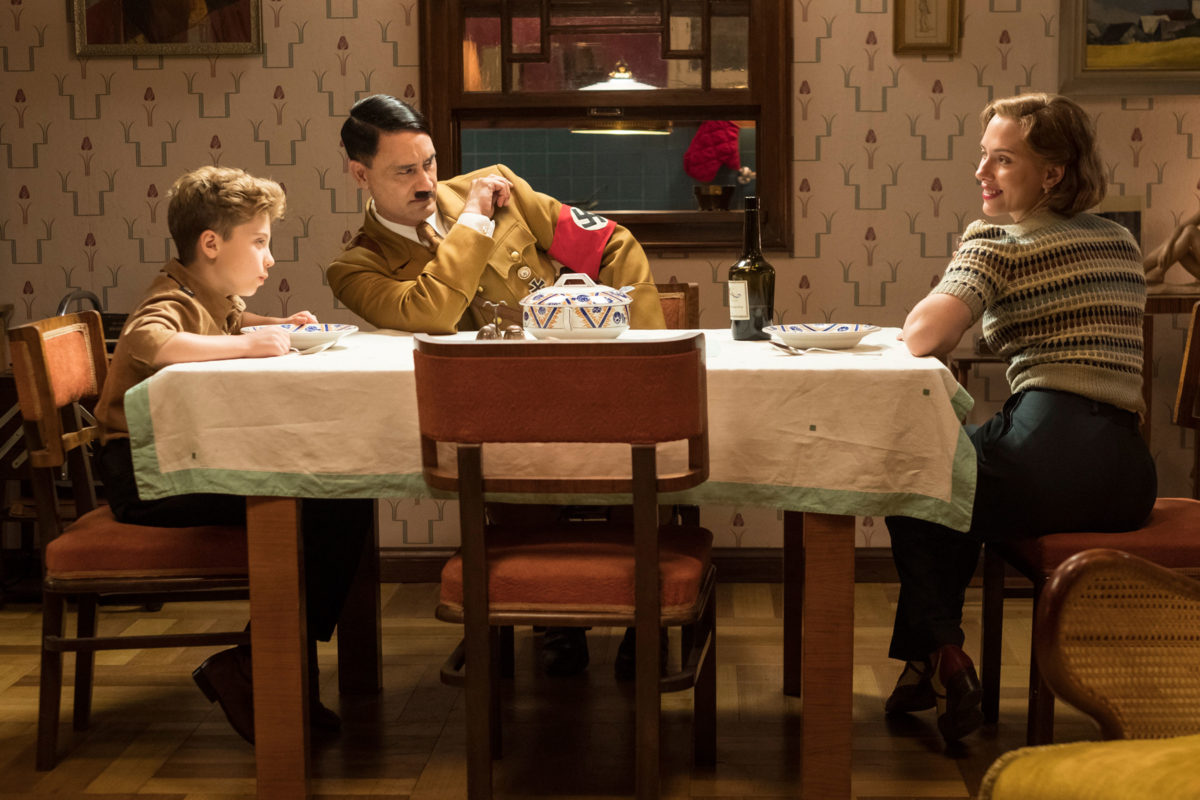Taika Waititi’s BAFTAs Speech Is So Very Taika

(image: 20th Century Fox)
Jojo Rabbit is the kind of movie that has stayed with me for months after watching it, and I give nearly all the credit for that to Taika Waititi. Forcing us to examine how history is, in a lot of metaphorical ways, repeating itself, the movie takes a look at Nazism and, by extension, White Nationalism as it stands today.
Now though, with Taka Waititi’s wins and nominations, it seems as if there is a mix of praise and skepticism of the movie. Taika Waititi is winning awards for his work on Jojo Rabbit, as I think he should. A brilliant satire focusing on a young boy bewitched by ideals Hitler fed to the children under his reign, the film beautifully breaks down the idea of institutionalized hatred and how it grows.
At the BAFTAs this past weekend, Waititi took home the award for Best Adapted Screenplay. His speech, though, was so Taika Waititi that it was perfect. Almost with a “well, this is fun” tone (rather than the normal baffled “Thank you” from those who win), Taika Waititi remained true to himself, and maybe that’s why I’m still thinking about it.
Starting by saying, “This is very very cool for me. Coming from the colonies, it’s been a hard week for you guys and it’s going to be very nice to take a little bit of your gold back home, where it belongs,” the speech went on to just be more of a ramble about how grateful he was to have this movie made, and maybe that’s why I love it so much. It wasn’t some grandiose look at him and his career but showed just how much this film meant to him and, obviously, means to viewers.
Jojo Rabbit has been a topic of conversation since its inception. Based on the book Caging Skies by Christine Leunens, the story follows Jojo and his imaginary “friend,” Adolf Hitler, throughout a story of deconstructing institutionalized hatred and how, during World War II, children were fed lies in order to create more of Hitler’s mentality in the youth.
All of this leads to extremely nuanced and interesting takeaways from the movie—some praising the bravery, some questioning the efficacy of the satirical elements, but all resulting in one thing: We’re talking about it. Whether or not Jojo Rabbit is a movie you find engaging or offensive or whichever adjective you prefer, it’s something that has people talking about the rise of White Nationalism, both historical and current.
I think that the genuine conversation surrounding Jojo Rabbit is important and that we should definitely be open to discuss how this movie resonates, and I hope those kinds of conversations start to happen even more as Taika’s work continues to earn recognition.
Want more stories like this? Become a subscriber and support the site!
—The Mary Sue has a strict comment policy that forbids, but is not limited to, personal insults toward anyone, hate speech, and trolling.—
Have a tip we should know? tips@themarysue.com